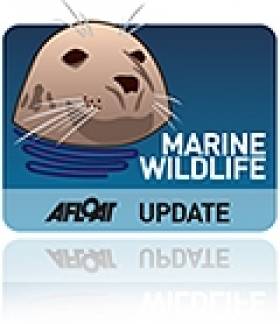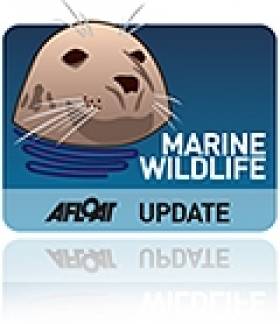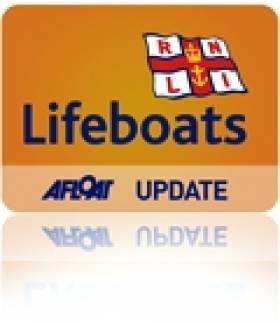Displaying items by tag: Scotland
Search Ends For Missing Crew Of Capzised Cargo Ship Off Scotland
#Cemfjord - As the investigation into the grounding of a car transporter in the Solent gets under way, at the other end of the UK stormy weather has been blamed for the capsize of a cargo ship in Pentland Firth.
As The Irish Times reports, no trace of the eight crew of the Cemfjord has been found after the 83m cement carrier was spotted upturned in the waters off the far north of mainland Scotland on Saturday 3 January.
A spokesperson for the ship's owners Brise of Hamburg said the ship had sent no distress call before sailing into severe weather.
"It was a violent storm and it seems likely that the weather would have been a factor but, until we have some better idea of what happened, I can't say how much of a factor."
The same vessel was involved in a grounding incident last summer, in which its previous captain was found to be intoxicated while in charge.
Scottish Tidal Energy Scheme Gets Green Light From Financiers
#SeaPower - What's been described as the world's largest planned tidal energy scheme has been given the green light by its financiers, with construction set to begin off the northern Scottish coast in the new year, as The Guardian reports.
Previously detailed last month on Afloat.ie, the MeyGen project – comprising 269 turbines on the seabed off Caithness in the far north of mainland Scotland – will see onshore construction get under way next month after developers Atlantis Resources satisfied the conditions to draw down funds from The Crown Estate of Scottish Enterprise.
MeyGen aims to harness the strong currents at the Ness of Quoys in Pentland Firth to generate energy at levels "on a part with wind turbines" but hidden from view beneath the waves - with the first power from the sea to be delivered to Britain's national grid by 2016.
Dolphin Visitor 'Clet' Pops Up In Scotland
#MarineWildlife - Two months after striking up a friendship with fellow 'dolphina-non-grata' Dusty in his travels around Ireland, 'bad boy' bottlenose Clet has moved on again - this time to the west coast of Scotland.
According to the Island News & Advertiser, Clet appeared in the Sound of Mull in the Inner Hebrides during the week - his first confirmed sighting after he was seen frolicking with Dusty in Galway Bay - making for a rare sighting of a solitary dolphin in the area.
“To our knowledge, this is the first time that Clet has been recorded in Scotland, and in fact this is the furthest north he has been recorded to date,” said Dr Conor Ryan, sightings officer with the Hebridean Whale and Dolphin Trust.
Pádraig Whooley of the Irish Whale and Dolphin Group (IWDG) also hailed Clet's reappearance, saying: "The addition of Scotland after a two-month interval brings his known tally of passport stamps to five countries and counting, and shows the need for international collaboration when trying to monitor these highly mobile marine mammals.”
But Scottish dolphin-watchers be warned, as Clet may have been involved in an act of aggression towards swimmers near Galway city in early October.
The Island News & Advertiser has more on the story HERE.
Dubliners Solve Riddle Of Ghost Kayak On Scottish River
#Kayaking - An abandoned kayak in the fast-flowing River Braan posed something of a mystery for Perthshire locals, and prompted fears of a lost kayaker.
But as local paper The Courier reports, those concerns proved unfounded as two friends from Dublin solved the riddle of their 'ghost kayak'.
James O'Keeff told the paper how they only discovered the puzzle they'd left for locals when they spotted the story online.
Some days before, his friend John Stanley became separated from his kayak at treacherous rapids on the Braan known as 'the Splitter'.
The vessel was later located where it was too dangerous to retrieve, but somehow wires got crossed and the message didn't get to local emergency teams.
The Courier has more on the story HERE.
Scottish Firm Taking Wind Farms Underwater
#PowerFromTheSea - The next big renewable energy turbine farm could be underwater off the coast of Scotland, as MailOnline reports.
Scottish firm MayGen has big plans to install a £51 million (€65.2 million) underwater turbine project to harness the powerful currents of their country's coastal waters.
This new project, earmarked for Pentland Firth at Caithness in the far north of mainland Scotland, follows separate plans to install the world's largest tidal power facility in the Sound of Islay.
MayGen - which has just won an award for its parent company Atlantis Resources for its "significant contribution" to the marine renewables industry – says its state-of-the-art technology is "on a par with wind turbines" in terms of productivity, but would be hidden from the view of those who find the larger land-based wind farms unsightly.
The Pentland Firth project will be the new design's proving ground, with hopes that it will generate power for nearly half a million homes upon completion in 2020.
MailOnline has more on the story HERE.
Scotland Takes Issue With Belfast Coastguard Staffing Concerns
#Coastguard - Last month's Belfast Coastguard understaffing concerns have been echoed across the North Channel in Western Scotland, with the SNP adding its voice to the chorus of disapproval.
As Glasgow's Evening Times reports, Belfast's repeated staffing issues - the station was manned below risk-assessed levels on eight separate occasions - compounded problems already identified at Aberdeen, which was understaffed for more than half of all shifts in December.
Both stations are charged with protecting the entirely of the mainland Scottish coastline, on top of Belfast's duties for the whole of Northern Ireland.
The SNP's Stuart McMillan has cited both station's staffing records as evidence that the decision to close the Clyde coastguard station in Greenock, northwest of Glasgow, was ill-advised.
These concerns come as Ireland faces its own coastguard consultation efforts that threaten to undermine "30 years of progress in marine safety".
The Evening Times has more on the story HERE.
#MarineWildlife - BBC News reports that three killer whales from a community of orcas off the Scottish west coast have been spotted off the country's east coast for the first time since scientists began monitoring the group in the 1990s.
Mark Hosford of the Hebridean Whale and Dolphin Trust described the sighting as "a really exciting development".
He added: "The west coast community is thought to be the only resident population of orca in the British Isles, and understanding their behaviour and movements is crucial to the conservation of these remarkable creatures."
The group's normal range includes Scotland's north and west coasts to the west coast of Ireland, and is thought to comprise just nine older whales - which are also believed to be genetically distinct from other orcas in the North Atlantic, showing much closer similarity to Antarctic killer whales.
As reported on Afloat.ie earlier this year, marine wildlife experts fear that the group is now on the "brink of extinction".
Stranraer RNLI Rescues North Channel Drifters
#RNLI - Stranraer RNLI's lifeboat was dispatched by Belfast Coastguard on Friday evening (7 June) to rescue men from a stranded personal water craft on the rocks at Corsewall Point.
The men had been travelling on the water scooter across the North Channel from Ballycastle in Northern Ireland to Campbeltown in Scotland and back - a round trip of some 130km - but ran out of fuel on the return leg, and drifted to Corsewall on the north point of the Rhins of Galloway.
The RNLI Stranraer lifeboat launched at 5.20pm from Lady Bay and 20 minutes later arrived on scene, where they discovered that two of the men were cold and one had an ankle injury - although a conflicting report via the Belfast Coastguard says only two men were found.
The men were transferred safely on to the lifeboat and taken to Dally Bay, from where they were taken by road to Stranraer Accident and Emergency Hospital.
But as BBC News reports, they were beset by further problems on their return trip to Northern Ireland later that evening, when the private vessel on which they were travelling also ran out of fuel and had to be towed to Red Bay in Co Antrim.
Belfast Coastguard confirmed to the BBC that the men had been travelling on their water scooter with "no navigational aids" and that "they could not get a signal from their mobile phone".
#maritimefestivals – The fascinating story of an ancient agricultural crop and how it played a key role in the maritime industry will be brought to life at Scotland's leading celebration of nautical heritage and culture.
A display and demonstration on flax – described as Britain's forgotten crop - will be one of the main attractions in the craft tent at the Aberdeen Asset Management Scottish Traditional Boat Festival later this month.
Crowds in excess of 16,000 are expected to descend on the village of Portsoy on the Aberdeenshire coast when the festival, now in its 20th year, takes place over the weekend of June 22 and 23.
The demonstration will be led by Flaxland, a group of flax growers and producers who featured in the BBC television show, Wartime Farm. They will be showing members of the public how the fibre was used in a huge variety of maritime products, and will reveal how they have even been able to build a boat made from flax fabric.
Flax growing in the UK is believed to date back to the Bronze Age and grew popular due to the versatility of both the plant's stem and seed. As well as being used in oil and in cooking, flax can be used to create everything from clothing to paint.
Roger Goodyear, chairman of the Aberdeen Asset Management Scottish Traditional Boat Festival, says organisers are delighted to welcome Flaxland to the event for the first time this year.
"The festival is one of many events taking place across the country for the Year of Natural Scotland, so it seems entirely fitting that this natural product with such a rich history in the UK should play a key role in this year's celebrations," he says.
"Authentic maritime and craft skills have always been an important part of the festival, and this year we will once again play host to a very diverse range of crafts men and women who represent the very best in traditional skills."
In addition to Flaxland, visitors will be able to learn splicing for beginners thanks to the maritime studies department of Orkney College, try a pottery wheel and watch a basket weaver in action. Younger visitors will also be able to take part in a workshop teaching basic knot-work, and the very popular Living Traditions tent will be making a return appearance.
The festival is a key event in the Year of Natural Scotland – a partnership between the Scottish Government, VisitScotland EventScotland and Scottish Natural Heritage which aims to showcase the country's unique natural environment.
For more information about the Aberdeen Asset Management Scottish Traditional Boat Festival and to buy tickets visit www.stbfportsoy.com Updates about this year's festival are also available on Facebook and Twitter – search for @STBFestival. An adult day ticket costs £8, children aged five to 18 and concessions are £5. Adult weekend tickets are priced at £12 and children and concessions at £8. There are also family tickets available which allow entry for two adults and three children for £25 for a day ticket and £35 for a weekend. Children under five go free and there is no charge for parking.
Rondo Wreck Visit Reminder of Diving's Dangers
#Diving - With the Lusitania back in the news, Ireland's wealth of interesting diving sites are bound to draw attention this summer.
But it's worth remembering how dangerous an activity wreck diving can be - as Gizmodo reader Magicguppy relates in a special column for the tech news website.
He recalls his first ever shipwreck dive in September 2006, to the remains of the Rondo beneath the Sound of Mull in western Scotland.
"Used as a passage for shipping for centuries, it had a certain reputation for wrecking ships — even in 1935," writes Magicguppy, who goes on to depict in vivid detail how the ship went down, not to mention how the danger persists today for those who want to get close to the wreckage:
"The surface current swept my dive buddy and I towards the buoy. I turned and saw it gunning down on me. Grabbing the rope under the buoy, I signalled to my buddy.
"I knew that we had to get down below the current, and if we let go, even for a second, we wouldn’t be able to fight the current and get back onto the rope. My buddy agreed: Time to dive."
Gizmodo has much more HERE. But be warned - some of the gruesome descriptions in this story are not for the faint of heart!






































































